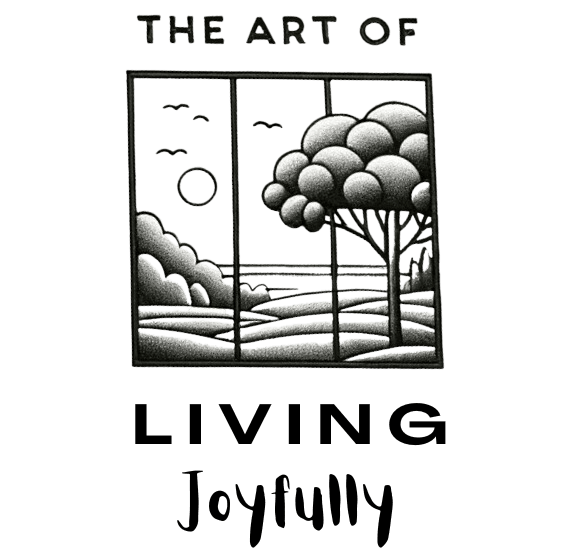Navigating Divorce and Dating after 50 with Patience and an Open Heart
Divorce after the age of 50 can feel as though one’s entire universe has been turned upside down. You appeared to be married and making retirement preparations as a couple one moment, and the next thing you know, you are alone and confronted with an uncertain future. You might experience an abundance of sorrow following the dissolution of your marriage, in addition to anxiety, dread, or even anticipation regarding the beginning of a new chapter. A whirlwind of emotions is typical.
Although this significant life transition may be difficult to navigate, it does not have to mean the termination of companionship, intimacy, or future aspirations. By dedicating time for introspection, seeking solid emotional support, and maintaining a receptive attitude towards transformation, this critical juncture has the potential to evolve into a chance for personal development and fresh starts. Maintain faith. Your resilience and sagacity enable you to enter your next phase of life in a constructive manner, just as you have successfully maneuvered through challenging circumstances in the past.
Take Time to Heal and Rediscover Yourself
It is essential to provide sufficient time and space for yourself to grieve the dissolution of your marriage. The resolution of the intricate emotions that accompany a divorce is crucial for moving forward in a healthy manner, as it signifies a significant bereavement. Maintain compassion and patience for yourself as you go through this transition. Avoid the urge to “get over it” hastily. Anger, bitterness, and the reliving of memories are common emotions that accompany grieving for a significant relationship in one’s life.
Additionally, during this time, it may be possible to rediscover passions and interests that were neglected during your marriage. The current moment presents an optimal opportunity to concentrate on one’s individual development. Spend quality time with close friends who uplift you, engage in enjoyable hobbies, and make self-care a priority through activities such as counseling, exercise, healthy eating, and journaling. To reflect and re-energize, contemplate a weekend getaway alone. Getting to know yourself again will build confidence to take on the challenges and opportunities ahead.
Lean on Your Support System
You are in no way required to navigate this challenging transition by yourself. Seeking support from trusted individuals can be beneficial in navigating through a significant life transition. Engaging in conversations with friends, family members, mentors, or professionals can assist in processing emotions and alleviating the sense of isolation that often accompanies such changes.
Joining a support group for divorce is something to think about. It may be very reassuring and cathartic to share your experience and listen to others who are facing comparable difficulties. These kinds of groups are frequently held at community clinics, psychology offices, community centers, and houses of worship in the area. Additionally, you can locate them through groups such as the Association of Divorce Financial Planners, Meetup, and DivorceCare. In addition, a skilled divorce coach can assist you with stress management, perspective, and the creation of a customized self-care schedule.
If you have kids, it is important to be completely honest and age-appropriate when discussing the divorce with them. You should also give them lots of comfort and try to keep their routine as much as you can. Children of divorce can also benefit from support groups created especially to provide a safe space for them to process their emotions.
Never underestimate the power of being vulnerable. It takes strength and wisdom to ask other people for help when you are going through tough times.
Embrace This Time of Transition with Openness
When you are going through a major life transition, it can be difficult to deal with the emotions that come along with it. Transitions, on the other hand, create new opportunities. If you approach this time with openness rather than resistance, you are more likely to find peace, hope, and excitement about your future.
Learn to say “yes” more often. If you have not seen some of your friends in a while, you should accept their invitations. Experiment with a new destination for the weekend. If you want to broaden your social circle, you should enroll in a class or club that meets on a regular basis. Beginning a hobby that you have always wanted to try but have never had the time to do so, such as painting, hiking, or ballroom dancing, is a great example. Create a list of places that you have always wanted to visit, and then begin making plans for the trip that you have been dreaming about. When you are in this stage, you have the opportunity to focus on exploring interests that are important to you rather than those that are important to someone else.
One chapter comes to an end, and a new one starts. Your ability to rediscover your passion and purpose will be facilitated by entering this transition with a willingness, curiosity, and courage. It is important to have faith in your ability to reinvent yourself. Be on the lookout for the opportunities that this conclusion presents, and make sure to take advantage of them.
Take the Time Before Dating Again
When you feel ready to start dating again, it’s important not to rush into a new relationship before you’ve given yourself time to heal, process your emotions, and rediscover who you are at this stage of life.
Start by getting comfortable doing activities independently that you may have done with a partner in the past, like going to a movie, taking a vacation, or attending events. Expand your social network through new friendships, community and volunteer involvement, hobby meetups, or other interest groups. This will help you adjust to solo socialization and introduce you organically to new people.
When you’re ready to date, consider online platforms like OurTime and SilverSingles that cater specifically to singles over 50. Be upfront in your profile about your past relationship status and what you’re looking for moving forward. Share your relationship goals and boundaries early when meeting new people. Trust your instincts; if a situation doesn’t feel right, don’t feel pressured to continue for the sake of coupling up. You deserve partners who complement the person you are today.
Most importantly, give yourself grace through this process. Personal growth and finding love after divorce take time. With patience, courage, and self-compassion, this new chapter can be full of adventure, fulfillment, and joyful surprises.
Embarking on the journey of divorce and dating after 50 requires courage, patience, and self-compassion. Allow yourself to fully grieve the loss of your marriage by surrounding yourself with supportive communities and taking time to heal emotionally. When you’re ready, view this transition as an opportunity to rediscover passions and interests independent of any partner, being open to new experiences, perspectives, and possibilities.
If and when you decide to date again, don’t feel rushed. Take things slowly and listen to your instincts. Focus on personal growth first, and let new relationships develop organically from there. Any new partnership should complement the wise, experienced, and enthusiastic person you’ve become. With an open heart and mindset, this next chapter can be full of excitement, meaning, and joyful new adventures.
You have so much life yet to live. Embrace both the painful moments and new possibilities. Have faith in yourself and your resilience. Though the terrain may be hard at times, you have all the wisdom and strength you need to navigate this transition and move forward in a positive, purpose-driven direction. The best is yet to come.







